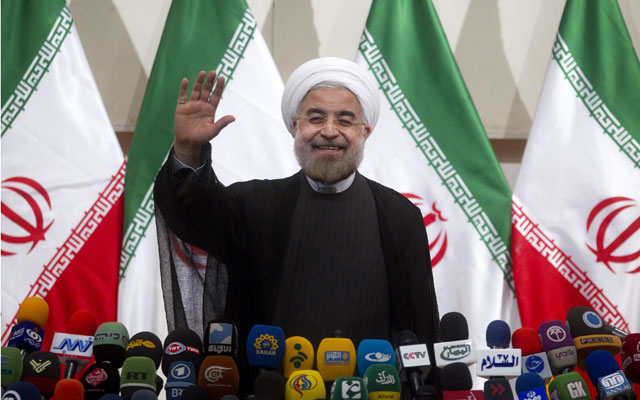After extracting a favorable agreement at the Geneva talks, Iranian President Hassan Rouhani is on top of the world.
One hundred days into Rouhani’s presidency, Iranian performers honored him with a music video (entitled “Aspirations”) that mirrors President Obama’s 2008 “Yes We Can” music video. Using the same black and white coloring, similar camera angles, nationally acclaimed performers, and an enrapturing melody created with traditional instruments, the video presents President Rouhani as a harbinger of hope and change for Iran.
But the U.S. has given Rouhani and his friends more than excellent PR ideas. At the Geneva talks, the five permanent members of the U.N. Security Council (plus Germany) signed an agreement with Iran that gives Tehran license to continue its nuclear efforts, more international prestige, and less economic pressure to dismantle its uranium enrichment program.
Justified or not, President Rouhani told the Iranian people in a speech on Sunday that the “world powers” have recognized Iran’s so-called right to nuclear technology and uranium enrichment. In addition, Rouhani claims that the U.N., U.S., and European Union will lift “all sanctions” and that “the sanctions organization will be defeated and crushed.”
The text of the agreement tells a different story, and the White House tells a third story. Heritage expert Steven Bucci invited three experts to discuss the true implications of the Geneva agreement. Not surprisingly, they are suspicious of Iran’s aspirations, as delightful as the background music may be.
Alexandria Lane is currently a member of the Young Leaders Program at The Heritage Foundation. For more information on interning at Heritage, please click here.
































